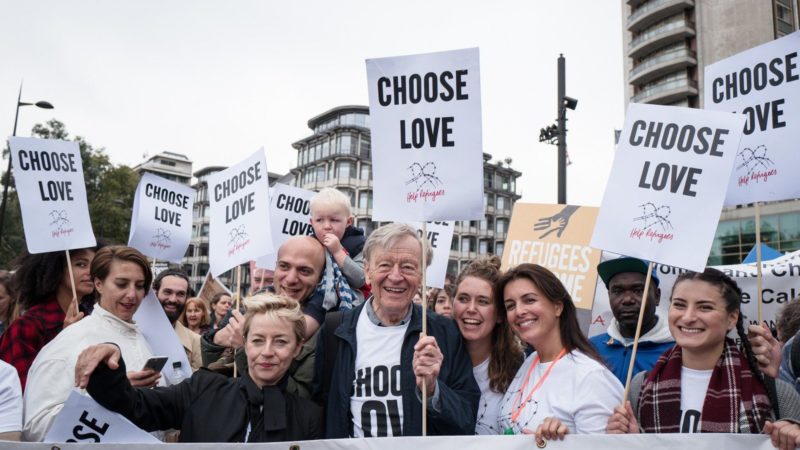
By any standards, the UK’s current immigration and refugee policies are failing. We don’t know how, or even if, Brexit will happen. But in any event, the British government could be doing more to assist the world’s refugees and should show leadership on the issue beyond our possible exit from the European Union.
Of all refugees, children are the most vulnerable to violence and exploitation. Mindful of this, in 2016, parliament agreed to the principle that we should take in child refugees (section 67 of the Immigration Act).
But the government has since dragged its feet. Initially, it arbitrarily capped the number of lone child refugees it committed to welcoming at 480 on the questionable grounds that local authorities were unable to come up with more foster places for children who arrive here with no family to support them. To date, three years on, only 250 lone children have arrived.
Although the government has welcomed a larger number of child refugees who have family in the UK able to care for them – under what is called the Dublin regulation – we have still only taken in 800. Meanwhile, refugee children are surviving in appalling conditions in northern France, on the Greek islands and elsewhere, with no family to care for them.
The vulnerable persons’ resettlement scheme, under which we have committed to take 20,000 refugees from Jordan, Lebanon and Turkey, is due to stop in 2020. The government has also committed to taking an additional 3,000 children also from the region, although to date only about 20 have been given a home here. The figures are depressing to read.
And even those relatively few who do manage to make a new life for themselves in the UK can face further hostility. At the age of 18, there is no guarantee that these young adults will not be returned to the country from which they fled, without clear assurances that this could happen in complete safety.
Against this backdrop, Brexit injects further uncertainty. One thing we can be sure of, in the event of a deal, is that the UK’s obligations under the Dublin regulation, to assist child refugees to be reunited with family here, will continue into the future. But there are several other things the UK government should also do.
It should extend the vulnerable persons’ resettlement scheme beyond 2020 when it is due to end. We should also urgently review the way immigrants and refugees are sometimes treated in this country. Detention should not be used except in the most extreme of circumstances and refugees should not be prevented from working until they have been here for at least a year. We should also look at the adequacy of mental health support for traumatised refugees, especially children.
Whether we agree a deal or not, we should argue for a Europe-wide approach to refugees and continue to play our part even from outside the EU’s formal structures. It is vital we maintain good relations with our European friends and cooperate with them on immigration and refugee issues.
It cannot be right, for instance, that currently there is virtually no sharing of responsibilities for new arrivals in Greece and Italy. It is in both our interests and those of the Greek government that we take in some of the children currently in Greek camps, above all where children have already been identified as eligible to come to the UK. In many cases, these children still have to endure months of uncertainty even after a decision is made to bring them here.
In 1938 the UK government welcomed 10,000 refugee children from Germany, Austria and Czechoslovakia, including me. I would like us to once again respond to a global refugee crisis with the same humanity and kindness we showed then by adopting the policy proposed by Safe Passage, that on the 80th anniversary of the Kindertransport, we commit to taking 10,000 child refugees over the next 10 years. That would work out at three children per local authority per year, surely a manageable target.
I believe that most British people agree with the policy of taking child refugees but it is vital that we maintain the support of public opinion in our immigration and refugee policies. That requires understanding public feeling and ensuring adequate support for public services. We have seen how in some European countries the far right has been eager to exploit refugee and migration issues in a cynical bid for electoral support. That must not be allowed to happen here. Given the current government’s track record, it will take a Labour government before we are able to develop a genuinely ethical approach to refugees and migrants, something that is needed now more than ever.
Alf Dubs is a Labour member of the Lords and will be a speaker at the FEPS-Fabian New Year Conference: Brexit and Beyond on 19th January 2019.




More from LabourList
Sadiq Khan signals he will stand for a fourth term as London Mayor
Starmer or Sarwar: Scottish Labour MSPs and MPs split over Keir Starmer’s future
‘Every Lidl helps: What can the Government do to bring down food prices?’